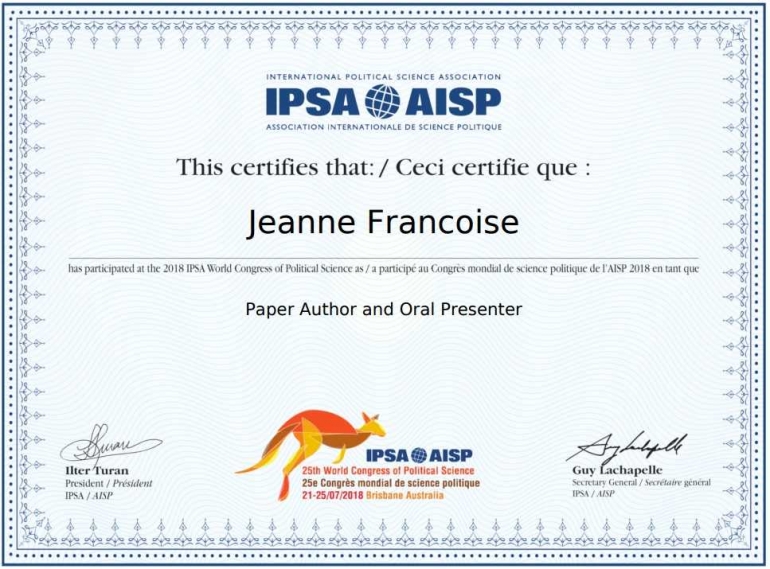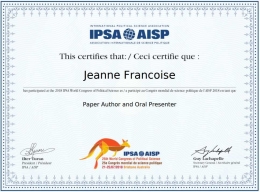This is only Abstract. Full Paper will be published by IPSA.
Modern International Management Of United Nations
Management Internationale Moderne Des Nations-Unies
Tatar Bonar[1], Yoedhi Swastanto[2], Sovian Aritonang[3],
Edward Efendi Silalahi[4], Jeanne Francoise[5]
(tatar.bonar@idu.ac.id, yoedhiswastanto@yahoo.com, sovian.aritonang@idu.ac.id, silalahi@uta45jakarta.ac.id, jeanne.francoise@idu.ac.id)
Abstract:
This paper, that would be presented in 25th IPSA World Congress of Political Science, Brisbane (Australia), 21-25 July 2018, has an hypothesis that United Nations is the world's best political organization to solve world problems and bring peace and security issue in the most elegant diplomacy between official representatives. In the changing politic environment, United Nations is demanded to be more responsive and faster to do level of actions, from preventive diplomacy, peace building, peace keeping, peace enforcement, and security sector reform or DDR (demobilization, demilitarization, and reintegration) process.
In this modern era of technology, United Nations decision could be found one minute after the meeting and the action on the war zone, could be implemented in less than five minutes, so that it is important that each decision could measure the risk management within it, especially for officials and local people, children, women, elders, and other environment.
To analyze the process of United Nations, this paper is using the theory of Polemology by Gaston Bouthol, Modernism by Alain Tourraine, Democracy by Plato, and international management by Pearson. In this paper, those theories are not best theories to seek deeper about United Nations; as communal organization including people from around the world from various backgrounds; but those theories are chosen as they are being used regularly if we speak about United Nations.








